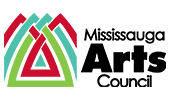
Substance abuse and addiction counseling is a structured and therapeutic process designed to help individuals overcome dependencies on substances such as drugs or alcohol. This form of therapy addresses the psychological, emotional, and behavioral aspects of addiction, aiming to facilitate recovery and promote a healthier lifestyle.
KEY COMPONENTS OF ADDICTION COUNSELLING
Assessment and Evaluation: A comprehensive evaluation of the individual’s history, substance use patterns, and related behaviors to tailor the therapy approach to their specific needs.
Individual Counseling: One-on-one sessions with a trained therapist to explore the root causes of addiction, identify triggers, and develop coping strategies. This can provide a safe and confidential space for individuals to address personal issues.
Cognitive-Behavioral Therapy (CBT): A widely used therapeutic approach that focuses on changing negative thought patterns and behaviors associated with addiction. CBT helps individuals develop healthier coping mechanisms and problem-solving skills.
Motivational Enhancement Therapy (MET): A counseling approach that seeks to enhance an individual’s motivation to change by exploring and resolving ambivalence. MET can be particularly effective in the early stages of recovery.
Family Therapy: Involving family members in the therapeutic process to address family dynamics and provide support. Family therapy can help rebuild relationships strained by addiction and create a more conducive environment for recovery.
Relapse Prevention: Developing strategies to identify and manage triggers, stressors, and situations that may lead to relapse. This includes creating a personalized plan for maintaining sobriety.
BENEFITS OF ADDICTION COUNSELLING
Holistic Approach: Addiction therapy takes a holistic view of an individual’s life, addressing physical, emotional, and social aspects, contributing to a more comprehensive recovery.
Skill Development: Therapeutic interventions equip individuals with coping skills, stress management techniques, and healthier ways to navigate challenges, reducing the reliance on substances.
Emotional Support: Therapy provides a supportive environment where individuals can express their feelings, fears, and challenges without judgment, fostering emotional healing and resilience.
Behavioral Changes: Through targeted interventions like CBT, individuals can modify negative behaviors, thought patterns, and attitudes associated with addiction.
Relapse Prevention: Addiction therapy helps individuals identify potential relapse triggers and develop effective strategies to prevent and manage relapses.
Improved Relationships: Involving family in therapy can repair and strengthen relationships damaged by addiction, fostering a supportive network for long-term recovery.
Enhanced Self-Awareness: Therapy encourages self-reflection, helping individuals gain a deeper understanding of the underlying issues contributing to their addiction and empowering them to make positive changes.














